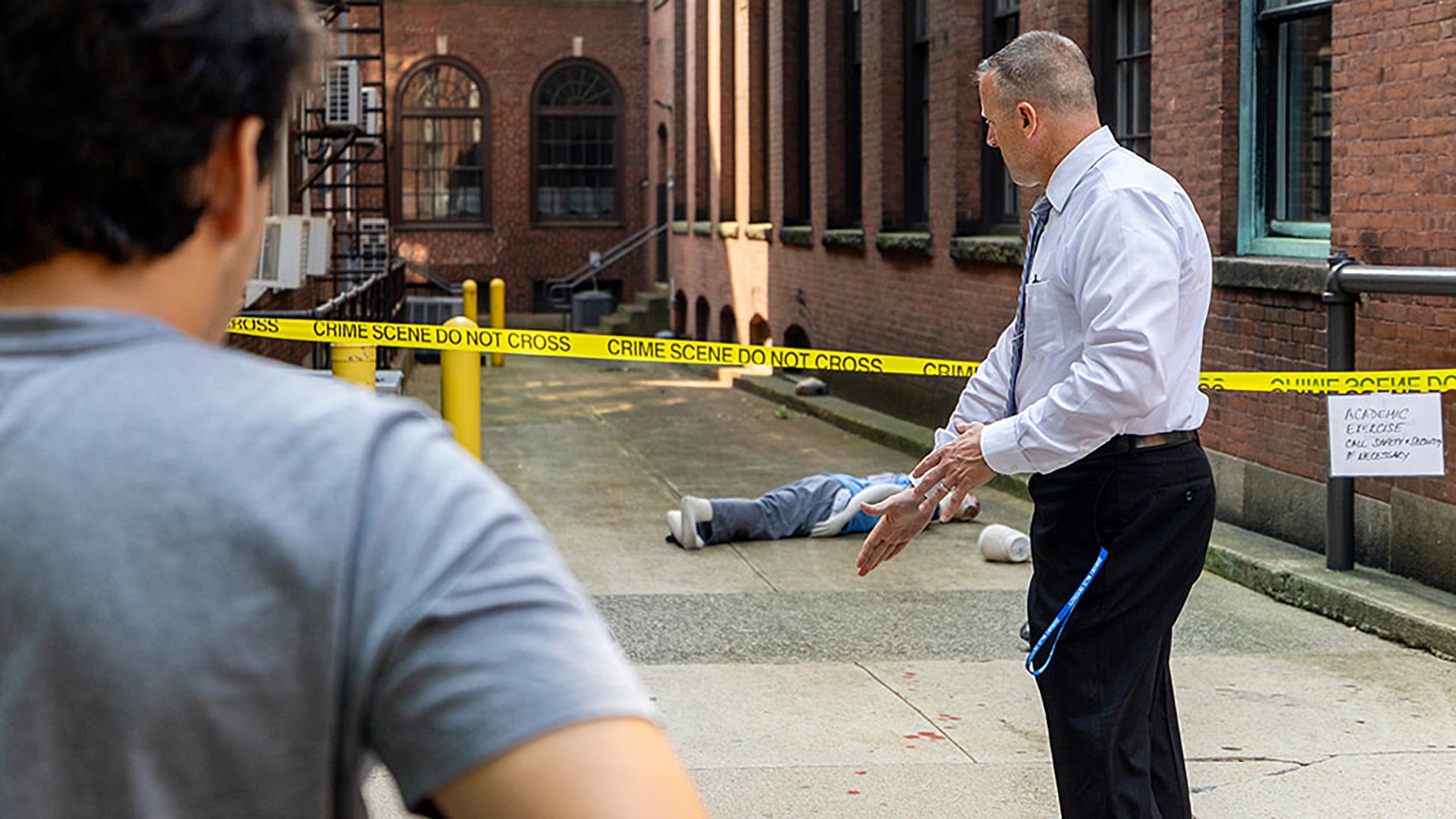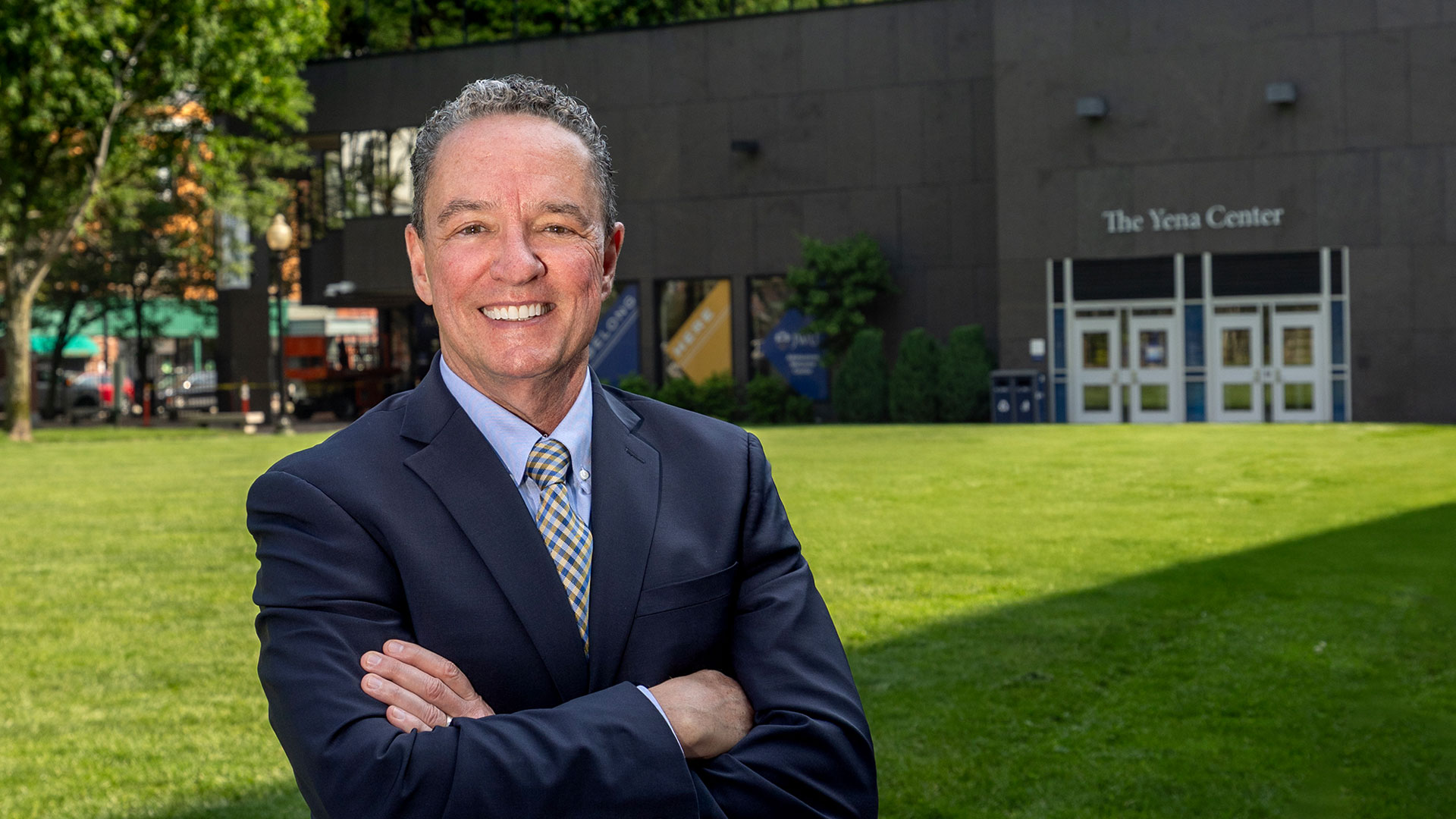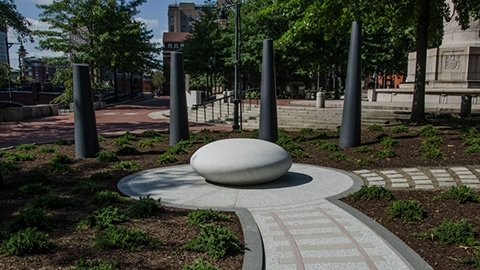
Students from JWU’s School of Engineering and Design played a major role in enhancing the visitor experience at the new Rhode Island Holocaust Memorial, located at Memorial Park on South Main Street in Providence. The memorial, which was dedicated on August 26, is the result of collaboration between the Jewish Alliance of Greater Rhode Island and the Holocaust Education Resource Center of Rhode Island. The project was supervised by the Rhode Island Holocaust Memorial Committee (RIMH).
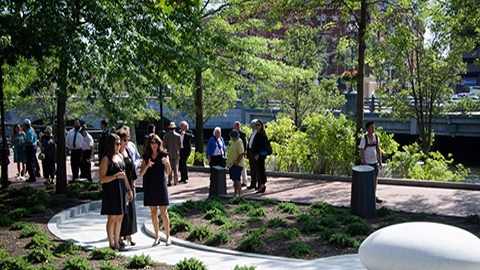
Johnson & Wales became involved when Jeffrey Tagen was approached by a RIMH board member in 2014 and asked to explore ways to add educational technology to the memorial. Tagen, the Academic Coordinator of JWU’s School of Engineering and Design, assembled a team of 4 students (Will Hall, Eric Beltram, Hayward Gatch and Brandon Sciancalepore, pictured left to right below), who spent their winter term brainstorming and prototyping potential solutions before presenting to the memorial foundation’s board. The group presented 3 possible projects, one of which was ultimately implemented.
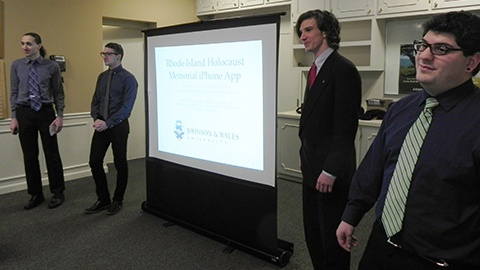
Monument construction began, Hall, Beltram, Gatch and Sciancalepore received their diplomas, a new school year started, and Tagen again looked to the School of Engineering and Design student body to carry out the plan the initial group had started.
Julian Reis and James Kowalski, two students majoring in electronics engineering, took over the project. They made and programmed beacons that use Bluetooth low-energy technology to transmit signals to an app that visitors to the monument can install on their smartphone or tablet.
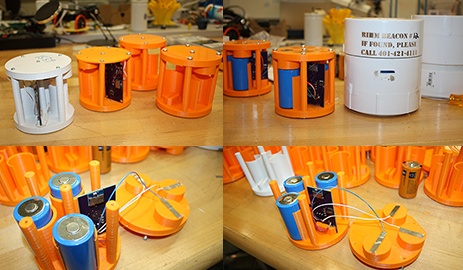
As visitors move throughout the memorial, the beacons relay appropriate information about the different parts of the memorial and the Holocaust. The student-designed beacons are able to function for 15 years on off-the-shelf batteries through all types of severe weather conditions. The app was also developed by the students.
![]()



